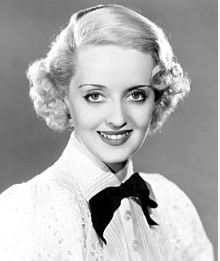
Who Was Bette Davis?
Bette Davis was a trailblazing American actress, born Ruth Elizabeth Davis on April 5, 1908, in Lowell, Massachusetts. Rising to prominence after a brief stint in theater, she became one of Hollywood’s most iconic stars, appearing in nearly 100 films before her death in 1989. Known for her commanding screen presence and strong character portrayals, Davis remains a cinematic legend, celebrated for her roles in classic films like All About Eve and Dark Victory, as well as for her larger-than-life personality both on and off the screen.
Early Life
Born to Ruth Favor and Harlow Morrell Davis, Bette experienced a challenging childhood. Her parents divorced when she was seven, and her mother raised Bette and her younger sister, Barbara, on her own. While attending the Cushing Academy in Massachusetts as a teen, Davis discovered her passion for acting. After gaining experience in summer stock theater in Rochester, New York, she moved to New York City to study at the John Murray Anderson/Robert Milton School of Theatre and Dance, where she was classmates with Lucille Ball.
Broadway Debut and Early Film Career
Davis’s theater career began in 1929 when she made her stage debut at the Provincetown Playhouse in The Earth Between, and later that year, she appeared on Broadway in Broken Dishes. A screen test soon landed her a contract with Universal Pictures, leading to her first film role in Bad Sister (1931). After a few minor roles, Davis gained attention for her performance in The Man Who Played God (1932), a breakthrough that earned her a contract with Warner Brothers, where she went on to appear in 14 films over the next three years.
Career Highlights
Davis’s career-defining moment came in 1934 when she starred in Of Human Bondage, a role that earned her the first of many Academy Award nominations. She won her first Oscar in 1935 for Dangerous and her second in 1938 for Jezebel. Throughout her career, Davis played complex, strong-willed women, often challenging traditional gender roles in film.
Her performance in All About Eve (1950) as Margo Channing, a theater actress grappling with the insecurities of aging, is considered one of her finest. The role gave audiences one of her most memorable lines: “Fasten your seatbelts, it’s going to be a bumpy night.”
Later Work
Despite health struggles, Davis continued acting well into her later years. She appeared in What Ever Happened to Baby Jane? (1962), a chilling horror film alongside her longtime rival Joan Crawford, and later starred in Hush…Hush, Sweet Charlotte (1964). She remained active in film and television, earning an Emmy for her performance in Strangers: The Story of a Mother and Daughter (1979) and continued to receive critical acclaim for roles such as her turn in The Whales of August (1987).
Davis’s contributions to cinema were recognized with numerous awards, including the American Film Institute Life Achievement Award in 1977 and the Kennedy Center Honors in 1987. She passed away on October 6, 1989, in Neuilly-sur-Seine, France, after a distinguished career spanning six decades.
Personal Life
Davis was married four times. Her first marriage to bandleader Harmon Oscar Nelson Jr. ended in divorce, and her second husband, Arthur Farnsworth, died unexpectedly in 1943. She had one daughter, Barbara, with her third husband, William Grant Sherry. Her fourth marriage, to All About Eve co-star Gary Merrill, resulted in the adoption of two children, Margot and Michael, but ended in divorce as well.
In addition to her film legacy, Davis authored two autobiographies, The Lonely Life (1962) and This ‘n’ That (1987), offering insights into her personal and professional struggles. Her indomitable spirit and groundbreaking roles ensure that Bette Davis remains a lasting icon of the Golden Age of Hollywood.
